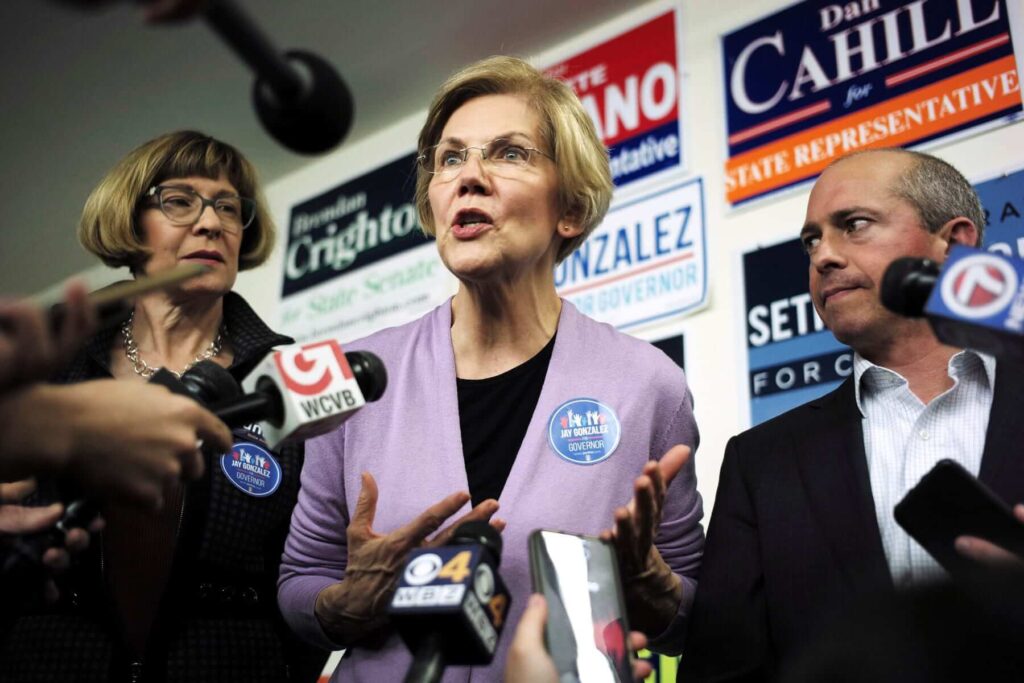by The Cowl Editor on January 17, 2019
Opinion

On December 31, 2018, Elizabeth Warren released a video announcing her plan to launch an exploratory campaign for the 2020 presidential election.
Warren is the harbinger of an inevitable surge of campaign announcements from prominent Democrats, and according to boston.com, the 2020 election may include as many as two dozen Democratic candidates.
However, Warren’s announcement has been surrounded by significant, yet unsurprising negative reception, as the American consensus, including that of her home state of Massachusetts, fails to endorse her presidential run.
The extreme criticism of Warren’s campaign, for such a wholesome politician, raises inquiry: What makes Warren so “unlikable” to the American public?
A semblance of an answer to this question can be found in the political circumstances that have brought Warren to the national limelight in recent years.
One such circumstance is her persistence to impugn Jeff Sessions in his nomination for attorney general by President Trump after an attempt to be silenced by the Republican party. This event begot the popular phrased adopted by the feminist movement, “Nevertheless, she persisted.”
Warren’s presence as a spitfire in the public forum, especially in upholding her beliefs, inevitably established her political presence as antagonistic to the Republican party, thus subjecting Warren to Trump’s harsh ridicule.
Following Hillary Clinton, Trump’s opponent in the 2016 presidential race, Warren became one of Trump’s favorite politicians to vilify. To that end, the consistent reappearances of Warren’s name on numerous public platforms attached to negative buzzwords coined by President Trump, has undoubtably sullied her reputation with the American public within both pro-Trump and anti-Trump communities alike.
Thus, Trump continued to lampoon Warren’s character after she announced that she would be launching an exploratory campaign for the 2020 election in an interview by Fox News. Trump was asked if he thought Warren believed she could defeat him in an election. His response: “I don’t know, ask her psychiatrist.”
Trump’s belittling commentary, as well as the decision of Fox News to probe Trump with this question, illustrates a media-charged effort by sectors of the right to desecrate Warren’s name.
Additionally, the fact that Warren is a woman cannot be overlooked in an assessment of the reluctance of the American public to endorse her as a political leader. While her politics alone already lose her the votes of conservatives, as they are somewhat comparable to those of her left-wing counterpart, Bernie Sanders, her social presence as an empowered and outspoken woman has lost her the support of a large percentage of the left as well.
Many Democrats will openly criticize Warren for her “aggressive tone” and “confrontational personality,” traits that can typically be attributed to male politicians. Moreover, many will use such characteristics to justify a reluctance to support Warren, in turn, revealing an adherence to unconscious gender biases.
While Warren is far from a consummate presidential candidate, as her controversial decision to consider herself of Native American ancestry has lost her some credibility amongst the American public, this incident remains the only blemish of Warren’s otherwise clean political record. Warren’s background is significantly less corrupt than most prominent politicians today.
In turn, the enduring negative reception of Warren’s campaign announcement, which will ultimately hinder any hope of her success in the 2020 race, appears to be deeply rooted in her vilification from President Trump and various sources of news media, rather than in a political or ethical discrepancy between Warren and American majorities.
To that end, as Americans, we can only hope that our counterparts will look beyond popular opinions, superficiality, and media biases, and evaluate incumbent candidates based upon their humanity, plans to benefit the welfare of all citizens, and effectiveness of said candidate’s plan to achieve their goals.